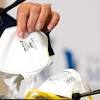While the world looks on aghast at Donald Trump, Peter Dutton can ...

 View image in fullscreen
View image in fullscreen
While the world looks on aghast at Donald Trump, Peter Dutton can take inspiration

Like the former US president, Australia’s opposition leader has honed his skills by exploiting identity politics
While the world watches agog, preparing for an increasingly plausible second coming of Donald Trump, our own opposition leader is paying more attention than most.
He lacks Trump’s bouffant, chutzpah and rap sheet, but Dutton’s path to power charts a similar trajectory: harness legitimate anger at late-stage capitalism to cast an erstwhile party of business as the champion of the common folk.
In opposition, Dutton has not so much given up on the Teal inner city seats as told them he’s no longer interested in their patronage, declaring war on the elites in a bid to entice those from outer metro and regional areas into the fold.
Like Trump, Dutton has honed his skills exploiting identity politics. His campaign to silence the Indigenous voice to parliament was a successful trial run, but the election will be the main game where he will attempt to nuke renewables and weaponise immigration.
Like Trump, he will rail against the woke corporate elites, hyperventilating about their diversity and inclusion programs while locking in their material interests.
And like Trump he will deploy Murdoch’s distribution platform which will dress up his constant stream of bad takes and thought bubbles as strong leadership while plastering over the rougher edges.
Will Dutton’s Trump shtick work? Findings in his week’s Guardian Essential Report shows Australians are feeling significantly more positively towards Trump than at the chaotic end of his presidency.
Note that among both Coalition and minor party voters Trump is more favourable than Kamala Harris. Also striking is the strong support for Trump among those who self-identify as struggling financially and those who are now union members.
The sense of doom that surrounded the 2016 election has also lifted, with the number of respondents concerned Trump would be worse for Australia’s relations with the United States plummeting from 63% in July 2016 to just 37% today.
Both Trump and Dutton are attempting to tap a vein of discontent that is grounded in a lived experience: the rise of global corporate power, the destruction of secure jobs, rising levels of inequality.
A central element of this strategy is to convince workers that the institutions designed to act in their interest – the political and industrial wings of the labour movement – have become corrupted and are no longer on their side.
It is here that allegations of underworld infiltration of the CFMEU is manna from heaven for Dutton and potentially devastating for the Albanese government.

The Dutton line, gleefully amplified across most media, is that the CFMEU is a feature not a bug of organised labour and that unions do not really represent the interests of workers any more.
Forget that the average union member is a migrant woman working in services or the caring sector, the message is simple: the CFMEU is rotten, so unions are rotten, so Labor is rotten too.
A second question in this week’s report shows how this line of attack is being waged on fertile ground: unions rate more than five times higher than the workers they represent to be perceived as wielding too much power.
The Trump-Dutton narrative can be summarised in this simple chart: the institutions of business, government and unions have too much power; it is local communities, small business and plain-talking individuals who have too little.
While the temptation for Labor is to shut the CFMEU allegations down and move the focus away from unions on to less contested ground, this is precisely what it should not do.
Rather than being driven into hand-wringing over activities in one union, Labor has an opportunity to tell a bigger story that has really defined its first term in power.
The most successful “gaffe” of the last election campaign was when Albanese got cornered into endorsing a one dollar a day pay rise. Since then, it has only got better for him.
The government’s active support of a $100-a-week increase to the minimum wage in just over two years, the broader measures to improve pay for aged care and early learning workers and the introduction of rights for labour hire and gig workers, have all contributed to getting flatlining wages moving gain.
In a world where government has limited control over inflation and pricing, this is the most tangible measure any government could make to address the cost of living: giving workers the tools to get a better share of the pie.
And the inconvenient truth for Dutton is that he and his team have consistently voted against measures to improve the wages and conditions of workers.
A final question shows that, in an era where the major parties have both been dragged to the centre, Labor retains a strong advantage on improving workers’ rights and supporting higher wages and conditions.
Granted we are not in the halcyon days of worker consciousness, with just 12.5% union density, down from more than 50% at the beginning of the 1980s. But even on the issue of union corruption, people trust Labor over the Coalition.
Like Trump, Dutton is a false prophet: his policy platform of getting tough on immigration, undermining the renewable transition and standing up for the little guy is riddled with holes.
The trick for any government seeking to occupy the unstable centre is not to deny the anger and be boxed into supporting the status quo but to harness the energy that is driving this discontent. Not to minimise it, but to confront it.
To not just defend the institutions that have been eroded by globalisation but to reform them and re-energise them to meet the concerns of those who feel abandoned and let down.
That’s harder than deflecting populist barbs or firing back angry slogans but it is the only way of holding braggarts, bullies and buffoons to account.
- Essential poll
- Opinion
- Peter Dutton
- Australian politics
- Coalition
- comment


 New Zealand
New Zealand Argentina
Argentina  Australia
Australia  Austria
Austria  Brazil
Brazil  Canada
Canada  Chile
Chile  Czechia
Czechia  France
France  Germany
Germany  Greece
Greece  Italy
Italy  Mexico
Mexico  Nigeria
Nigeria  Norway
Norway  Poland
Poland  Portugal
Portugal  Sweden
Sweden  Switzerland
Switzerland  United Kingdom
United Kingdom  United States
United States 
































